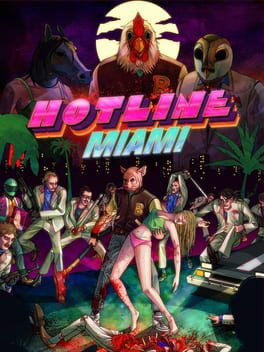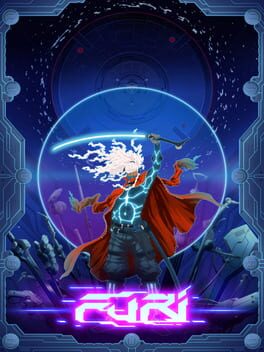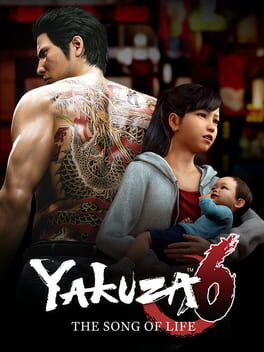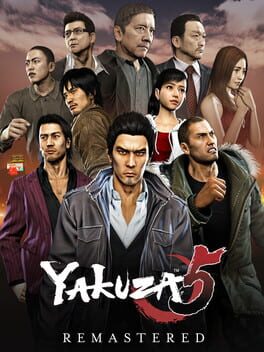TheBrassShark
I have never played a From Soft title before. Because of this, I feel that entering this game gives me a very different experience compared to From Soft veterans. I do not regret getting into this game first however.
When I used to live with a roommate, he encouraged me to play Sekiro while he watched so he could laugh at how much I struggled with the game. He wasn't particularly good at it, and he hadn't even gotten past the Guardian Ape. Still, it was that sense of competition that made me want to pick up and complete this game. I am thankful that he put that driving force in me.
The gameplay is relatively simple. You perform one of three actions. Attack, parry, or dodge. Of course there are nuances within these parameters but this is the core essence of the game. These three actions feel so fine-tuned for the game that I cannot fathom a good version of this game without them. Each option requires a good amount of understanding how enemies and bosses will proceed with their own set of moves.
Attacking recklessly will result in being overwhelmed with enemies that seem to not care about your steel stick.
Parrying has a fairly precise window that if done haphazardly, will result in a much less rewarding (both in gameplay and in sound) block. The block is handy for select situations, but it will not let you overwhelm bosses in the same that parrying can. There is no shortcut to parrying, you must sit down and spend time to learn the timings for each boss.
Dodging allows for swift maneuvers around the enemy, sometimes circumventing the need to parry at all. But not always. One thing that I hear most from those who've played other From Soft titles is that dodging does not function the same way as it does in those games. Sekiro does not give you any invulnerability during a dodge. Dodging has to be meaningful, with positioning in mind. The tradeoff is that you can place yourself in a position of power. One of my favorite features of dodging is jumping. After a jump, you can essentially jump from the enemy, dealing a lot of posture damage for enemies that like to play close to the ground.
These three actions in tandem make for a super fluid gameplay experience that I haven't witness the likes of before.
This review has dragged on very long but I'll make one last comment on one mechanic that I absolutely adore. The Posture system. Posture is a very different form of damage from regular health damage. Posture is not something that can be attacked directly (for the most part). Posture replenishes with inactivity, encouraging the player to keep laying it on thick so that the enemy doesn't undo all of your hardwork. A posture broken enemy can be dealt a deathblow, culling whatever remaining health they had. The importance of posture is that it provides a direct and very tantalizing reward for good parries. Parrying doesn't just prevent damage, nor just leave you in a better position to attack, it actively chips away at the enemy, getting you closer and closer to dealing an ever so gratifying deathblow. But just because you work perpetually towards chipping away damage, doesn't mean that's it. You have to continue to break their Posture repeatedly and with urgency. It also helps in a sense of accomplishment when compared to the much more daunting task of whittling down a boss's health bar that you seem to only be able to remove pixels at a time.
Of course you have your own posture to worry about, but I wouldn't say it's anywhere near detrimental for you as it for your enemies.
I know I left out the prosthetic tools and combat arts but personally I didn't find myself using them all that much (save for the feather on the final boss). Overall, this game is one of the most challenging yet rewarding experiences I've played. I haven't covered as much as I liked to but this review is really dragging on so I'll leave it at that. 9/10 game.
When I used to live with a roommate, he encouraged me to play Sekiro while he watched so he could laugh at how much I struggled with the game. He wasn't particularly good at it, and he hadn't even gotten past the Guardian Ape. Still, it was that sense of competition that made me want to pick up and complete this game. I am thankful that he put that driving force in me.
The gameplay is relatively simple. You perform one of three actions. Attack, parry, or dodge. Of course there are nuances within these parameters but this is the core essence of the game. These three actions feel so fine-tuned for the game that I cannot fathom a good version of this game without them. Each option requires a good amount of understanding how enemies and bosses will proceed with their own set of moves.
Attacking recklessly will result in being overwhelmed with enemies that seem to not care about your steel stick.
Parrying has a fairly precise window that if done haphazardly, will result in a much less rewarding (both in gameplay and in sound) block. The block is handy for select situations, but it will not let you overwhelm bosses in the same that parrying can. There is no shortcut to parrying, you must sit down and spend time to learn the timings for each boss.
Dodging allows for swift maneuvers around the enemy, sometimes circumventing the need to parry at all. But not always. One thing that I hear most from those who've played other From Soft titles is that dodging does not function the same way as it does in those games. Sekiro does not give you any invulnerability during a dodge. Dodging has to be meaningful, with positioning in mind. The tradeoff is that you can place yourself in a position of power. One of my favorite features of dodging is jumping. After a jump, you can essentially jump from the enemy, dealing a lot of posture damage for enemies that like to play close to the ground.
These three actions in tandem make for a super fluid gameplay experience that I haven't witness the likes of before.
This review has dragged on very long but I'll make one last comment on one mechanic that I absolutely adore. The Posture system. Posture is a very different form of damage from regular health damage. Posture is not something that can be attacked directly (for the most part). Posture replenishes with inactivity, encouraging the player to keep laying it on thick so that the enemy doesn't undo all of your hardwork. A posture broken enemy can be dealt a deathblow, culling whatever remaining health they had. The importance of posture is that it provides a direct and very tantalizing reward for good parries. Parrying doesn't just prevent damage, nor just leave you in a better position to attack, it actively chips away at the enemy, getting you closer and closer to dealing an ever so gratifying deathblow. But just because you work perpetually towards chipping away damage, doesn't mean that's it. You have to continue to break their Posture repeatedly and with urgency. It also helps in a sense of accomplishment when compared to the much more daunting task of whittling down a boss's health bar that you seem to only be able to remove pixels at a time.
Of course you have your own posture to worry about, but I wouldn't say it's anywhere near detrimental for you as it for your enemies.
I know I left out the prosthetic tools and combat arts but personally I didn't find myself using them all that much (save for the feather on the final boss). Overall, this game is one of the most challenging yet rewarding experiences I've played. I haven't covered as much as I liked to but this review is really dragging on so I'll leave it at that. 9/10 game.
2012
This game is good. Undoubtedly good. It does have some flaws with some bugs regarding how doors work and difficulty spikes in levels. Granted, that last point might just be due to my skill level.
Hotline Miama encourages the player to rush in guns blazing and to get a feel for the environment. To die again and again and again until you know exactly how the level's going to play out. The MC can feel a little slippery at first due to how quick you move around the rooms but it's ultimately snappy and that quickness can even leave you wishing for more speed (conveniently granted through select masks!). It takes a while to completely understand but once it clicks, it's like magic. It's as if you're playing Super Hot but without the need for any time-slow mechanic, you're just that good. There is one flaw with the levels though which is that as much as you try to learn a layout, some enemies will walk a seemingly random path on respawn. This can lead to your perfect plan being stopped short. At the very least, respawn times are virtually non-existent, which helps stave off the discouragement from a failed run.
The soundtrack is definitely a highlight of this game. The high energy music as you do your work, keeping the adrenaline pumping as you swiftly maneuver around the level like a fish in water. It keeps you excited and keeps you going, until it doesn't want you to anymore. The music does such a good job of pumping you up, you forget the mindless violence and havoc that you've wrecked upon dozens of lives. None of it sinks in until everything is said and done. The fast tempo cuts out and all your left with is a quiet droning while surrounded by bodies on top of bodies, all your own handiwork. I don't know if a game has ever made me question my actions more.
One hand, the killing is a fun puzzle that you spend painstaking amounts of attempts to figure out. On the other, you are left to sit with the destruction you've caused and reflect on the gruesome massacre that you didn't even give a second thought to.
The secret ending leaves much to be desired, it's built up to be cathartic, the ultimate reveal. Only to be something initially insignificant. I've heard this is built upon in the second game, but the second game doesn't seem to follow the same design philosophies as this one, so perhaps I'll pass on it for now. Overall, a great game, 8/10
Hotline Miama encourages the player to rush in guns blazing and to get a feel for the environment. To die again and again and again until you know exactly how the level's going to play out. The MC can feel a little slippery at first due to how quick you move around the rooms but it's ultimately snappy and that quickness can even leave you wishing for more speed (conveniently granted through select masks!). It takes a while to completely understand but once it clicks, it's like magic. It's as if you're playing Super Hot but without the need for any time-slow mechanic, you're just that good. There is one flaw with the levels though which is that as much as you try to learn a layout, some enemies will walk a seemingly random path on respawn. This can lead to your perfect plan being stopped short. At the very least, respawn times are virtually non-existent, which helps stave off the discouragement from a failed run.
The soundtrack is definitely a highlight of this game. The high energy music as you do your work, keeping the adrenaline pumping as you swiftly maneuver around the level like a fish in water. It keeps you excited and keeps you going, until it doesn't want you to anymore. The music does such a good job of pumping you up, you forget the mindless violence and havoc that you've wrecked upon dozens of lives. None of it sinks in until everything is said and done. The fast tempo cuts out and all your left with is a quiet droning while surrounded by bodies on top of bodies, all your own handiwork. I don't know if a game has ever made me question my actions more.
One hand, the killing is a fun puzzle that you spend painstaking amounts of attempts to figure out. On the other, you are left to sit with the destruction you've caused and reflect on the gruesome massacre that you didn't even give a second thought to.
The secret ending leaves much to be desired, it's built up to be cathartic, the ultimate reveal. Only to be something initially insignificant. I've heard this is built upon in the second game, but the second game doesn't seem to follow the same design philosophies as this one, so perhaps I'll pass on it for now. Overall, a great game, 8/10
2016
As I came off a lengthy and trying experience with From Soft's Sekiro, I realized how much I came to love very precise and demanding action combat. Time passed and my longing for something Sekiro-like grew. It didn't take long for me to remember about this little gem that I had initially passed up on.
Furi's combination of a bullet-hell and intense sword-play is definitely a unique one. I hesitate to consider the two a marriage since the bullet-hell aspect is very much removed from the closer swordplay, especially with one of the jailers. As my little preamble stated, I was longing for this more intense swordplay and this title certainly delivered. I personally was not such a big fan of the bullet-hell aspect but that's just how I feel.
The music is also something phenomenal. I was excited going in since I do enjoy this kind of deep-synth music but I wasn't exactly aware of how much of a treat it was going to be. I don't think that listening to the soundtrack outside of the game does it much service either. Not because the songs are weak but because they are heightened with the intensity that this game provides.
Trying to rate this game was a little difficult since it's not one that's held a place in my mind for very long, maybe due to it's short length. Regardless, it's still a fantastic experience that I think anyone who enjoys tough games would love.
Furi's combination of a bullet-hell and intense sword-play is definitely a unique one. I hesitate to consider the two a marriage since the bullet-hell aspect is very much removed from the closer swordplay, especially with one of the jailers. As my little preamble stated, I was longing for this more intense swordplay and this title certainly delivered. I personally was not such a big fan of the bullet-hell aspect but that's just how I feel.
The music is also something phenomenal. I was excited going in since I do enjoy this kind of deep-synth music but I wasn't exactly aware of how much of a treat it was going to be. I don't think that listening to the soundtrack outside of the game does it much service either. Not because the songs are weak but because they are heightened with the intensity that this game provides.
Trying to rate this game was a little difficult since it's not one that's held a place in my mind for very long, maybe due to it's short length. Regardless, it's still a fantastic experience that I think anyone who enjoys tough games would love.
Pretty good game
2019
This review contains spoilers
Yakuza 5 is fine. I hear that it’s a lot of people’s introduction to the series and that’s really dumb. That aside, I want to start by talking about each character’s story.
Unlike 4, you start with Kiryu in this title. It’s a nice little treat with the main downside being that also unlike 4, Kiryu starts pretty powerless. However, his ability to pick up skills at a relatively fast pace makes up for this. His play style is the same as it’s always been but I feel that it’s slightly more fluid from previous games. Still rewarding as ever to dispatch hordes of enemies or do serious damage to single target foes.
Kiryu’s story I find is one of the more interesting ones partly because it’s the first and the whole Tojo conspiracy with Daigo going missing immediately reels you in. Doing the sidestory also adds a decent amount to the characterization of the little town that Kiryu relocated to. You wonder why he moved and why Haruka is on TV and what’s going on with Daigo. All these interesting questions culminate to the end with “who killed Majima?” Personally I thought this was interesting but nothing that would be permanent. An off screen death for a beloved character didn’t seem like it’d stay that way.
Unlike 4, you start with Kiryu in this title. It’s a nice little treat with the main downside being that also unlike 4, Kiryu starts pretty powerless. However, his ability to pick up skills at a relatively fast pace makes up for this. His play style is the same as it’s always been but I feel that it’s slightly more fluid from previous games. Still rewarding as ever to dispatch hordes of enemies or do serious damage to single target foes.
Kiryu’s story I find is one of the more interesting ones partly because it’s the first and the whole Tojo conspiracy with Daigo going missing immediately reels you in. Doing the sidestory also adds a decent amount to the characterization of the little town that Kiryu relocated to. You wonder why he moved and why Haruka is on TV and what’s going on with Daigo. All these interesting questions culminate to the end with “who killed Majima?” Personally I thought this was interesting but nothing that would be permanent. An off screen death for a beloved character didn’t seem like it’d stay that way.
2017
Quality depends





